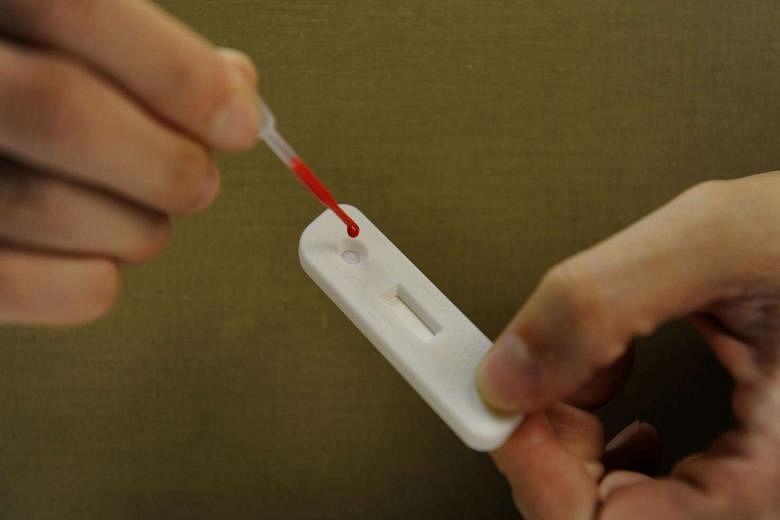Singapore - The number of people becoming infected with the human immunodeficiency virus (HIV) continues to be stable with 319 new cases diagnosed in the first 10 months of the year.
Last year, 380 people were diagnosed in the same period. According to Ministry of Health figures, about 450 people have been diagnosed every year since 2008.
While acknowledging that numbers have stabilised, advocacy group Action for Aids says a concern remains with the high proportion diagnosed with late stage infection, when treatment is more challenging.
MOH's figures show about 38 per cent had late-stage HIV infection when they were diagnosed.
The profile of cases is similar to last year's. Of this year's infections so far, more than nine out of 10 were male.
Sexual intercourse remains the main mode of transmission. In the cases diagnosed in the first six months, heterosexual transmission accounted for 32 per cent, while homosexual sex accounted for 56 per cent. This is up from 50 per cent over the same period last year.
Previous media reports have cited greater awareness of the disease and its prevention as being a factor in the numbers remaining stable.
MOH said the most effective way of preventing HIV infection is to remain faithful to one's partner and avoid casual sex. People engaging in high-risk sexual behaviour should use condoms and have regular HIV testing.
Early and effective treatment can help those living with HIV delay the onset of Acquired Immune Deficiency Syndrome (AIDS) and continue leading active lives.
Senior Minister of State for Health Amy Khor said in a post on her Facebook page that while the prevalence of HIV in Singapore's general population has remained low, the public "must not be complacent".
This view was echoed by AFA's general manager Sumita Banerjee, who said: "Though infections have plateaued over the last five years, there has been an increase in infections among some groups. Many of the newly-diagnosed heterosexuals were in later stages of infection making HIV treatment more challenging."
Ms Banerjee said since the uptake of testing is still "quite low" in Singapore, efforts must continue to promote HIV testing for early diagnosis of infection among high-risk persons.
She also stressed the need to "look at new interventions for HIV prevention and control such as PrEP (Pre-Exposure Prophylaxis) among high risk persons, which have proven to be efficacious outside of Singapore, and make them available to those who need it."


